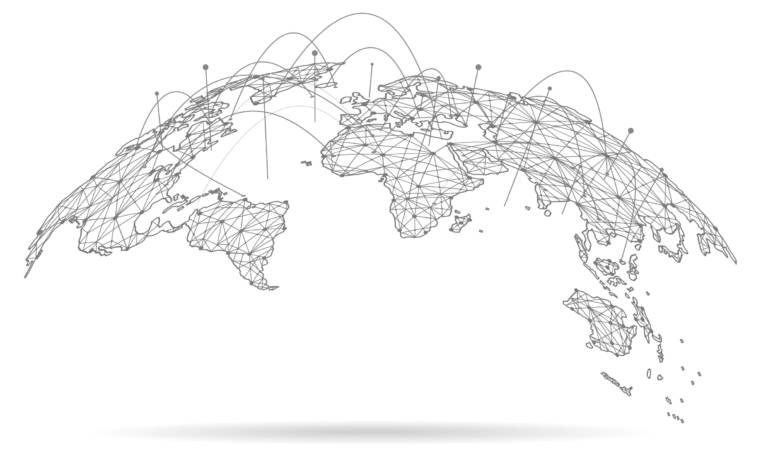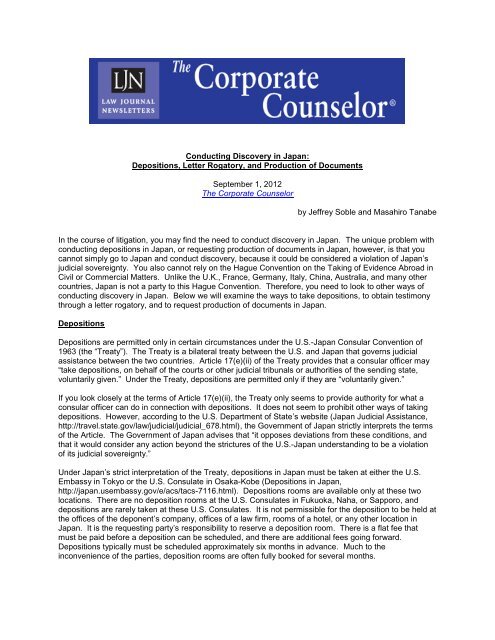Letters Rogatory Explained: Facilitating Legal Cooperation In Between Countries

Definition of Letters Rogatory
Letters rogatory are formal requests made by a court in one territory to a court in one more territory, seeking support in acquiring proof or statement for a lawful case. This step-by-step system is essential in the context of international legislation, where lawful systems may differ, and cross-border cooperation is essential. Letters rogatory assist in the celebration of details that may be critical for settling cases, specifically in circumstances involving complex global problems.
Commonly, these demands emerge in civil, criminal, or administrative matters where an event calls for proof that lies outside the jurisdiction of the requesting court. The letters work as a method to ensure that the principles of due process are supported, allowing courts to access evidence that might or else continue to be unattainable as a result of lawful or geographical obstacles.
Using letters rogatory is controlled by global treaties, bilateral agreements, or residential legislations, which mark the treatments and responsibilities of the courts involved. It is necessary to keep in mind that the execution of such demands is not guaranteed; they rely on the regulations and methods of the territory receiving the letter. Thus, letters rogatory are an essential device for promoting lawful cooperation and making sure justice throughout borders.
The Refine of Issuing Letters Rogatory
Issuing letters rogatory includes an organized procedure that guarantees conformity with both domestic and international lawful requirements. Initially, the asking for party, commonly a court or lawful authority, prepares a formal request outlining the nature of the assistance sought, the proof or details needed, and the lawful basis for the demand. This document should be accurate to help with understanding by the foreign jurisdiction.

The next step entails transmitting the letters rogatory to the designated foreign authority. This is typically done via diplomatic channels or global legal aid frameworks, making certain that the demand is gotten and acknowledged by the foreign court. The international court then refines the request according to its very own lawful treatments, ultimately reacting to the asking for celebration with the desired info or proof, thus helping with international legal collaboration.
Importance in International Legislation
The relevance of letters rogatory in global legislation can not be overstated, as they function as a crucial mechanism for judicial collaboration across borders. These formal ask for help in lawful matters enable courts in one territory to inquire, proof, or the visibility of witnesses from another jurisdiction, therefore promoting the administration of justice in transnational cases.
Letters rogatory are specifically important in the context of globalization, where lawful conflicts frequently cover numerous countries. They allow the collection of proof that could otherwise be unattainable, guaranteeing that lawful process are notified and reasonable. By cultivating partnership in between judicial systems, letters rogatory assistance support the guideline of regulation and advertise common regard amongst countries.
Moreover, making use of letters rogatory shows a dedication to international standards and principles of collaboration, reflecting the interconnected nature of modern lawful practices. It shows the importance of adhering to established procedures and treaties, such as the Hague Convention, which provides a structure for these demands - Letters rogatory. Eventually, letters rogatory improve the efficiency of lawful procedures, guaranteeing that justice is not prevented by geographical limits
Obstacles and Limitations
Despite their importance, letters rogatory face a number of obstacles and limitations that can hamper their efficiency. One main concern is the varying lawful frameworks and procedures across jurisdictions, which can cause misconceptions and delays in the execution of requests. Various countries may have unique demands for the validity of letters rogatory, making complex the process even more.
In addition, the often protracted nature of worldwide legal collaboration can hinder timely access to evidence or witnesses. This delay might detrimentally affect ongoing investigations or legal procedures, particularly in instances requiring urgent action. In addition, the absence of resources and training in some jurisdictions can cause inadequate handling of demands, bring about inadequate or insufficient actions.
Cultural distinctions and varying mindsets towards lawful procedures can likewise pose substantial obstacles. Nations with less official legal systems might struggle to conform with the procedural rigor expected in letters rogatory. Political tensions in between countries can influence the determination to carry out demands, resulting in a lack of participation and lessening the utility of this system in worldwide legislation. These best site obstacles demand continuous discussion and reform to enhance the efficacy of letters rogatory in lawful participation.
Case Research Studies and Examples

On the other hand, obstacles can develop, as seen in a case entailing a European nation seeking evidence in an ongoing criminal issue from a non-EU nation - Letters rogatory. The procedure was postponed due to bureaucratic difficulties and differing lawful criteria, ultimately hindering the examination
These examples show that while letters rogatory can promote international teamwork and speed up legal process, they also highlight the need for clear communication and understanding of legal frameworks in between nations. Such study highlight the relevance of refining this tool to improve performance and performance in global legal matters.
Final Thought
In recap, letters rogatory act as an essential mechanism for helping with lawful collaboration in between countries, guaranteeing the collection of evidence and testament throughout jurisdictions. Their importance in international legislation can not be overemphasized, as they promote due procedure and improve the efficiency of cross-border lawful proceedings. However, obstacles such as varying political stress and legal structures might prevent this page their performance. Proceeded initiatives to boost the procedure and simplify are necessary for promoting stronger global judicial collaboration.
Letters rogatory are formal demands made by a court in one jurisdiction to a court in an additional jurisdiction, seeking assistance in acquiring proof or testament for a legal case. The requesting party, commonly a court or lawful authority, prepares an official demand detailing the nature of the support looked for, the evidence or info required, and the lawful basis for the demand. The international court then refines the demand according to its very own legal procedures, eventually reacting to the asking for event with the in-demand info or evidence, therefore facilitating worldwide lawful teamwork.
Moreover, the use of letters rogatory shows a dedication to global norms and concepts of participation, showing the interconnected nature of modern-day lawful techniques.Global legal teamwork through letters rogatory is not without its real-world ramifications, as illustrated by different instance studies that highlight both obstacles and successes.